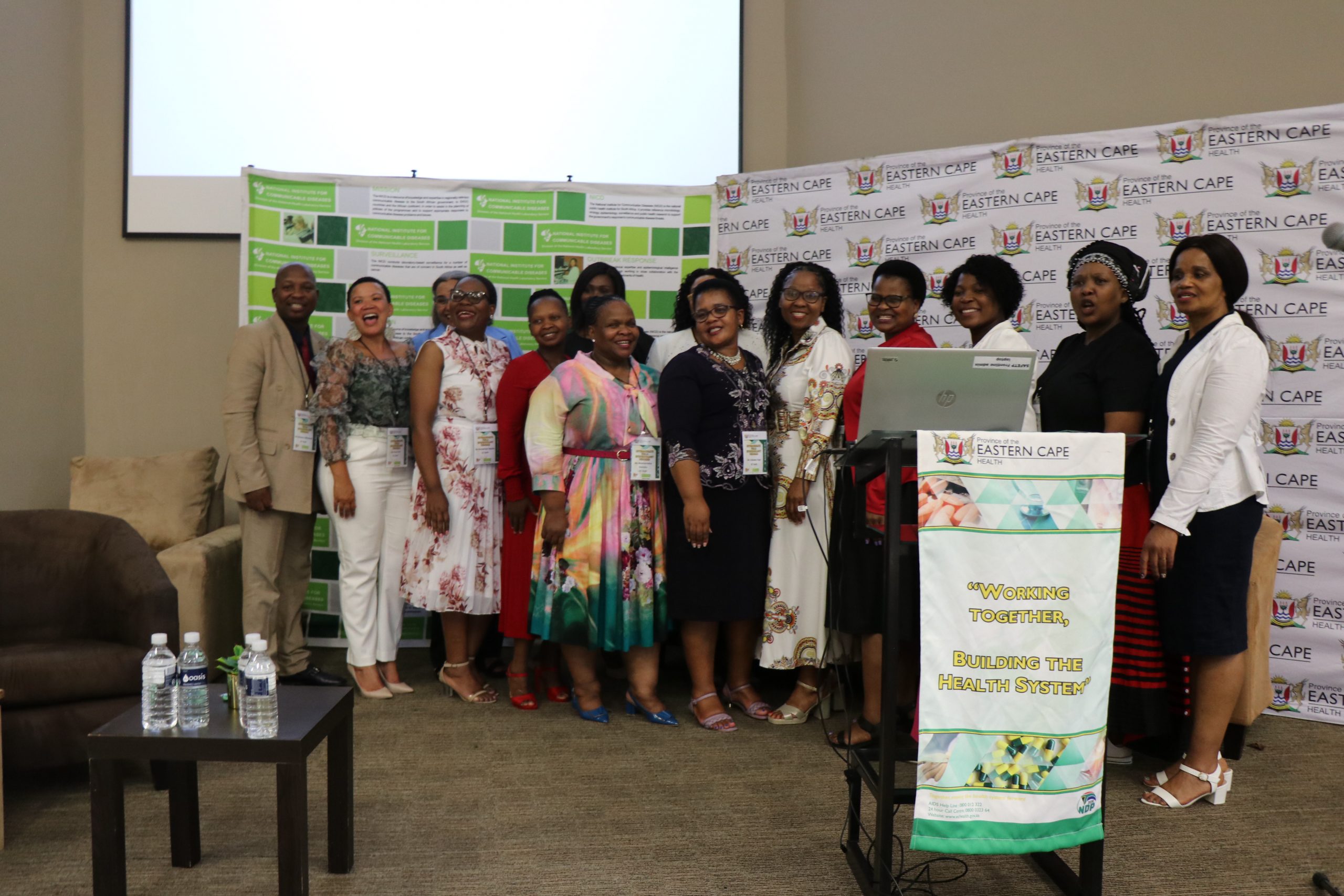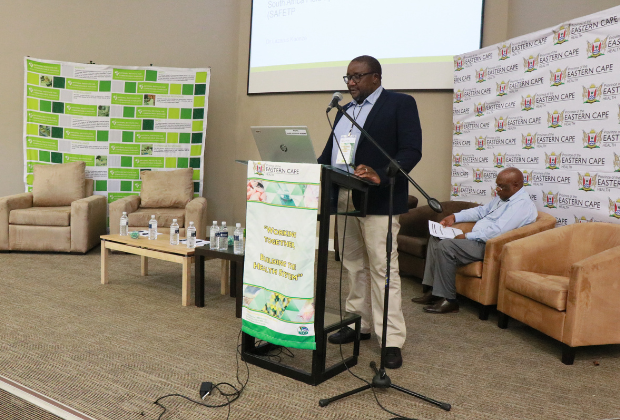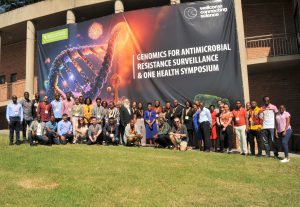The World Health Organisation (WHO)’s monitoring and evaluation framework for implementation of International Health Regulations (IHR-2005) recommends that every member state should attain a target of at least one field-trained epidemiologist per 200 000 population, as one of the crucial workforce development indicators to ensure optimal public health security. Field Epidemiology Training Programs (FETPs) have been established around the world to assist countries to attain optimal field epidemiology workforce capacity.
Experiences from the COVID-19 pandemic have highlighted the importance of having a well-trained public health workforce at all levels of the health system, to facilitate the prevention, detection, and rapid response to public health threats.
During the peak of the pandemic, the Eastern Cape Department of Health (ECDoH) had only one trained epidemiologist responsible for the coordination of all epidemiology and surveillance streams of the provincial pandemic response activities, according to Dr Singilizwe Moko, the Chief Director for Strategy and Organizational Performance in the ECDoH. This limited epidemiology capacity made it difficult for the department to cope with the necessary data management and reporting requirements that were necessary to monitor the pandemic and guide response efforts, especially at the district level.
In November 2021, the ECDoH collaborated with the South African Field Epidemiology Training Programme (SAFETP) of the National Institute for Communicable Diseases (NICD), with support from the USA Centers for Disease Control and Prevention (US CDC) to train a cohort of 15 district level department of health staff as ‘Field Epidemiologists’, using a new training program called the ‘FETP-Intermediate’ Program.
This newly introduced FETP-Intermediate is a 9-month on-the-job training program that addresses the field epidemiology skills needed by mid-level public health officials of the Department of Health (working at district, provincial and national levels) to become efficient ‘Field Epidemiologists’, also known as ‘Disease Detectives’. The goal of the training program is to build a network of skilled ‘disease detectives’, who are able to monitor the occurrence of public health threats, investigate them and develop interventions to eliminate them as rapidly as possible, in order to protect and improve the health of the public.
On the 29th and 30th of November 2022 the ECDoH and the NICD’s SAFETP co-hosted a 2-day scientific seminar and graduation ceremony for the inaugural cohort of the FETP-Intermediate Program, at the Christian Centre Abbotsford in East London, Eastern Cape Province. Attended by more than 100 participants, the seminar showcased the important work done by the new graduates during the course of their training, and also served as a platform to disseminate practical recommendations to the ECDoH stakeholders for implementation. Among the participants was the leadership of the ECDoH, representatives of academic institutions from the province (e.g. Fort Hare university), representatives of partner organizations that support various public health programmes of the ECDoH (e.g. Foundation for Professional Development, etc), and others.

During the course of their training, the FETP-Intermediate trainees responded to over 30 disease outbreaks across the province, evaluated 15 surveillance systems for quality improvement, and compiled more than 15 surveillance summary reports, among other projects. Sixteen (16) of these field projects were presented during the seminar. Some of the work presented includes findings from an investigation of 3 outbreaks of human rabies in children, an outbreak of foodborne illness outbreak in a school, and an outbreak of schistosomiasis in a school. Others also presented findings from the evaluation of surveillance systems across the province, including HIV surveillance, maternal death surveillance, acute flaccid paralysis surveillance, and others.
The ECDoH leadership congratulated the graduands on successfully completing the training, and appreciated the value of the work presented during the seminar. The leadership discussed how some of the presented findings and recommendations could be considered for discussion in the upcoming provincial strategic planning sessions. The USA Deputy Chief of Mission to South Africa, Heather Merrit, who also attended the ceremony, congratulated the graduands on becoming emerging disease detectives and upcoming public health leaders.
The FETP-Intermediate will be rolled out to other provinces across the country, to assist South Africa in accelerating progress towards achieving the WHO recommended field epidemiology workforce development targets, but to also build a network of skilled ‘disease detectives’ in order to strengthen field epidemiology capacity at district level.
Some of the abstracts presented during the seminar:
- Epidemiology of human rabies cases in the Eastern Cape Province from 2018 to 2021
- Human rabies outbreak investigation in Mooiplaas village in Amathole District, Eastern Cape, November 2021
- Rabies Outbreak Investigation in O.R. Tambo District, Eastern Cape Province, December 2021
- The epidemiology of Tuberculosis Cases in Joe Gqabi District, Public Health Facilities, Eastern Cape Province, 2019 to 2020
- Evaluation of HIV Surveillance System at Chris Hani Health District, Eastern Cape Province, July 2018 to June 2020
- Description of COVID-19 vaccine breakthrough infections among hospitalized healthcare workers, Eastern Cape, South Africa, March – November 2021
- Schistosomiasis Outbreak Investigation at a Junior Secondary Schools in February 2022, Mbhashe Sub-District, Eastern Cape – South Africa
- Schistosomiasis cases in Sundays River Valley, Sarah Baartman District, Eastern Cape, January 2019 – December 2021
- Evaluation of the Acute Flaccid Paralysis surveillance system in Alfred Nzo District, Eastern Cape Province, South Africa, April 2019- March 2022
- Risk factors for COVID-19 adverse clinical outcomes among healthcare workers in O.R. Tambo District, Eastern Cape Province, April 2020 – December 2021
- Epidemiology of laboratory-confirmed hepatitis B infections in Buffalo City Metro District public health facilities, Eastern Cape Province, South Africa, 2020-2022
- Evaluation of maternal death surveillance system in Nelson Mandela Bay Metro, Eastern Cape Province, 1 January 2020 – 31 January 2021
- COVID19 hospitalisations among healthcare workers, Eastern Cape Province, April 2020 – December 2021
- Foodborne illness outbreak at a school hostel in Amathole District; Eastern Cape, February 2022





